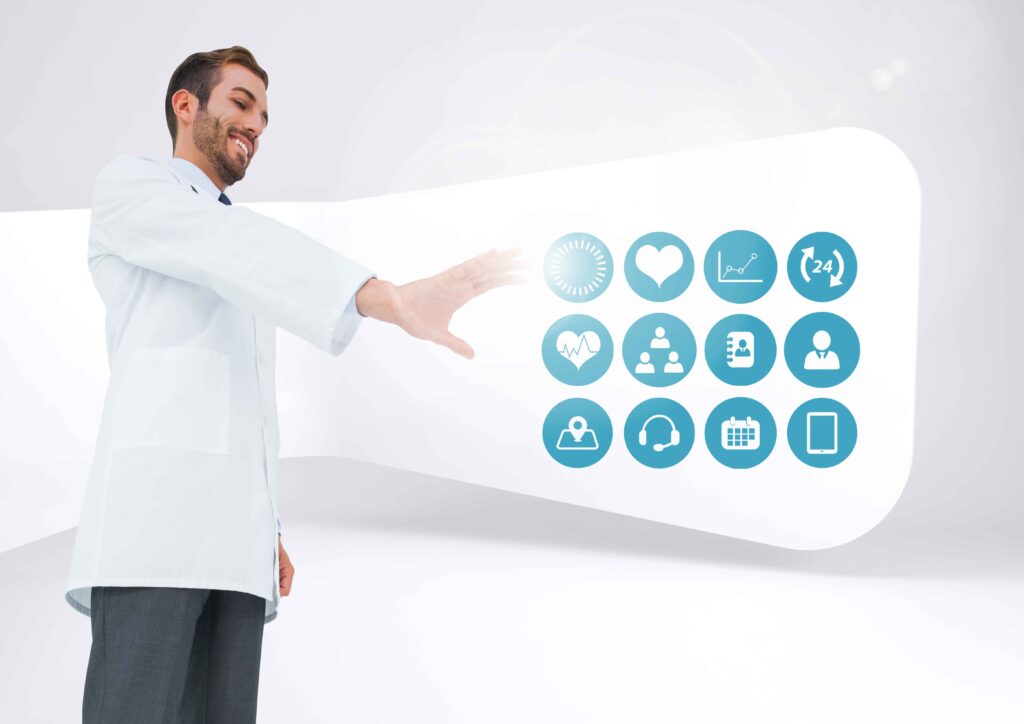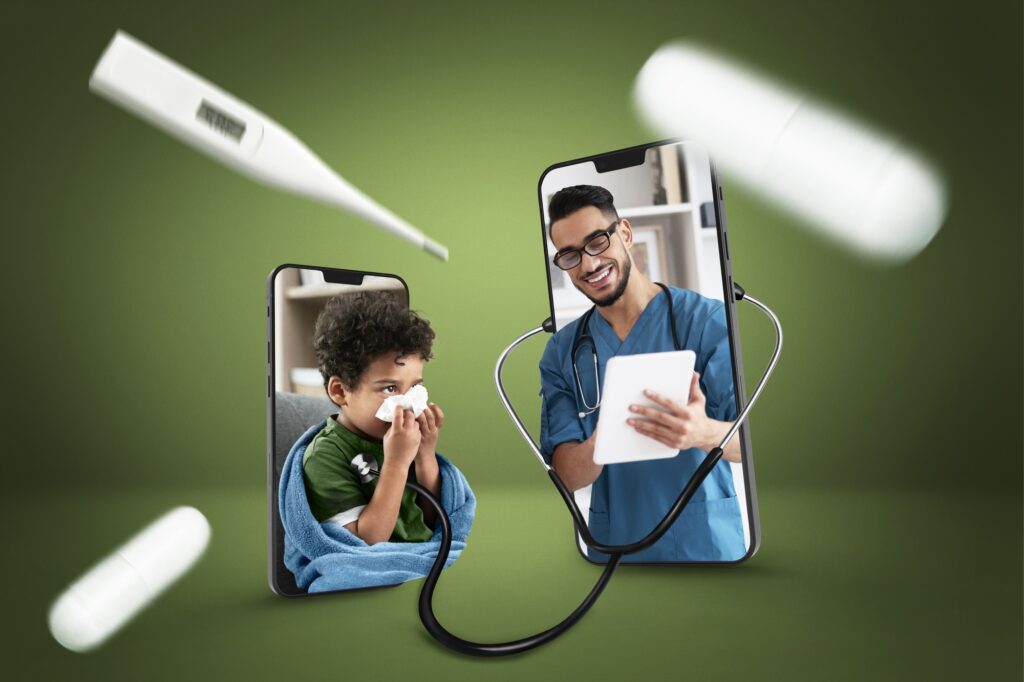Social media has completely changed how we communicate, share information, and maintain connections, becoming an essential part of our daily lives. Facilitating instantaneous communication across countries and creating connections on a never-before-seen scale has radically altered human interaction. Social media platforms have revolutionized how people access and exchange information, from personal relationships to professional networking.
The healthcare sector has been impacted by this digital revolution in recent years. This change has produced fascinating chances for patients and healthcare professionals to interact in significant, lasting ways. Social media healthcare is a phenomenon that describes how healthcare organizations strategically use social media platforms to improve trust, education, and communication. By opening up new channels for communication and cooperation between healthcare professionals and their communities, it is revolutionizing patient engagement.
The Rise of Social Media in Healthcare
Patients now have the ability to take control of their health thanks to the digital era. Nowadays, a lot of healthcare companies use social media sites like Facebook, Instagram, Twitter, LinkedIn, and YouTube to communicate important information, give updates, and cultivate relationships with their audience. In order to facilitate prompt exchanges and create a feeling of community, social media has become an essential instrument in the healthcare industry.
72% of internet users look up health-related information online, and a sizable percentage use social media to get guidance, feedback, and support, per a Pew Research Center survey. This change emphasizes how important it is for healthcare practitioners to use social media in order to keep current and successfully engage their audience.
How Social Media Enhances Patient Engagement
Patient engagement is the cornerstone of effective healthcare delivery. It ensures that patients are informed, involved, and motivated to make healthier decisions. Here are several ways social media healthcare enhances patient engagement:
1. Improved Communication
Social networking sites give medical professionals a direct line of communication with their patients. Social media makes it possible to communicate in real-time, whether you’re answering patient questions, providing health advice, or posting service changes. For instance, a hospital can utilize Twitter to answer queries regarding COVID-19 precautions or to notify followers about flu vaccine campaigns.
2. Educational Content
Social media’s capacity to spread instructional content is among its most significant features in the healthcare industry. Videos, infographics, and essays on subjects including illness prevention, mental health awareness, and exercise advice are often shared by hospitals, clinics, and wellness organizations. These articles empower people to make knowledgeable decisions about their health in addition to educating them.
3. Building Trust
Trust is crucial in the healthcare industry. Providers can demonstrate their expertise, establish trust, and humanize their business by being engaged on social media. Establishing a personal connection with the audience is facilitated by sharing behind-the-scenes photos, staff introductions, and patient success stories.
4. Patient Support Groups
Additionally, social media healthcare makes it easier for people with related medical issues to create online support groups where they may exchange stories and guidance. These organizations can greatly enhance patients’ well-being by offering emotional support and creating a sense of community.
5. Feedback and Reviews
Patients can post ratings and comments about their experiences on social media sites. Although there may be drawbacks, this is a chance for medical professionals to resolve issues, enhance offerings, and show that they are dedicated to providing high-quality treatment.
Challenges in Social Media Healthcare
While the benefits of social media healthcare are undeniable, it comes with its own set of challenges:
1. Privacy Concerns
One of the main concerns when using social media is protecting patient confidentiality. To protect patient data, healthcare institutions must make sure that laws like the Health Insurance Portability and Accountability Act are followed.
2. Misinformation
Serious repercussions may result from the dissemination of inaccurate or misleading health information on social media. Healthcare professionals must aggressively combat false information by disseminating reliable, fact-based information.
3. Managing Negative Feedback
Negative reviews or comments on social media can harm a provider’s reputation. It’s crucial to address such feedback professionally and transparently to maintain trust.

Case Studies: Success Stories in Social Media Healthcare
1. Mayo Clinic
The Mayo Clinic is at the forefront of using social media healthcare to interact with patients. They are active on social media sites like Facebook, YouTube, and Twitter, where they post instructional videos, patient endorsements, and professional advice. They have established themselves as a reliable healthcare authority and developed a devoted online community thanks to their strategy.
2. Cleveland Clinic
The goal of Cleveland Clinic’s social media strategy is to deliver value by posting educational content. With millions of followers, their blog, “Health Essentials,” and interesting social media updates cover a variety of health-related subjects. Their brand has been strengthened and patient involvement has increased as a result of their persistent efforts.
Best Practices for Social Media Healthcare
To maximize the impact of social media healthcare, providers should follow these best practices:
- Be Consistent: Maintain a regular posting schedule to keep your audience engaged.
- Share Quality Content: Focus on delivering content that is accurate, informative, and visually appealing.
- Engage Actively: Respond to comments, questions, and messages promptly to show your audience that you care.
- Monitor Trends: Stay updated on trending topics in healthcare to share relevant and timely content.
- Leverage Analytics: Use analytics tools to measure the effectiveness of your social media efforts and refine your strategy accordingly.
The Future of Social Media Healthcare
Social media healthcare is anticipated to expand as technology advances. Social media platforms will probably be integrated with emerging trends like healthcare, AI-powered chatbots, and virtual reality, opening up even more avenues for patient interaction. Additionally, health-related material is becoming more and more popular on platforms like Instagram and TikTok, particularly among younger audiences.
Furthermore, the rise of influencer marketing in healthcare cannot be ignored. Medical professionals, fitness experts, and wellness influencers are using their platforms to share credible health advice, further enhancing the reach and impact of social media healthcare.
Conclusion
The impact of social media healthcare on patient engagement cannot be overstated. It has revolutionized the way healthcare providers interact with patients, offering a platform for communication, education, and support. While challenges like privacy concerns and misinformation persist, the benefits far outweigh the drawbacks. By adopting a strategic approach and leveraging the power of social media, healthcare providers can build stronger connections with their audience and improve health outcomes. In an era where digital presence is paramount, embracing social media healthcare is no longer optional but essential for success.





